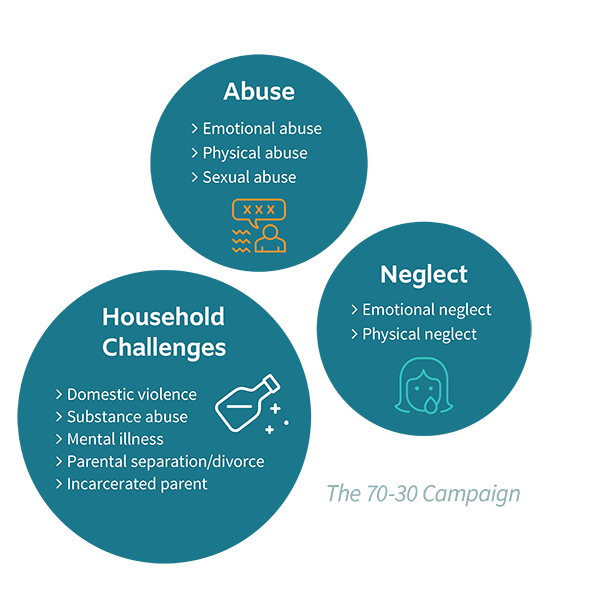Social and emotional skills are rooted in brain science—specifically, the fact that our brains can be trained to respond to challenges in more constructive ways.
When we teach and practice healthy responses to perceived threats, whether it’s a playground bully, a tough math problem, or a disagreement with a loved one, our brains can learn how to stop and intentionally choose a response rather than reverting to a kneejerk reaction. This ability of the brain is called neuroplasticity.
Both children and adults feel empowered when they understand that our irrational or unproductive behaviors don’t make us “bad”—they are rooted in brain chemistry, and we can retrain our brains.
While all children need these skills, social and emotional skills are key in promoting equitable outcomes for children in challenging contexts. For children who have been through adverse childhood experiences (ACEs), such as abuse, neglect, or household challenges, the brain is more likely to be in “fight, flight, or freeze” mode due to stress on the brain.

